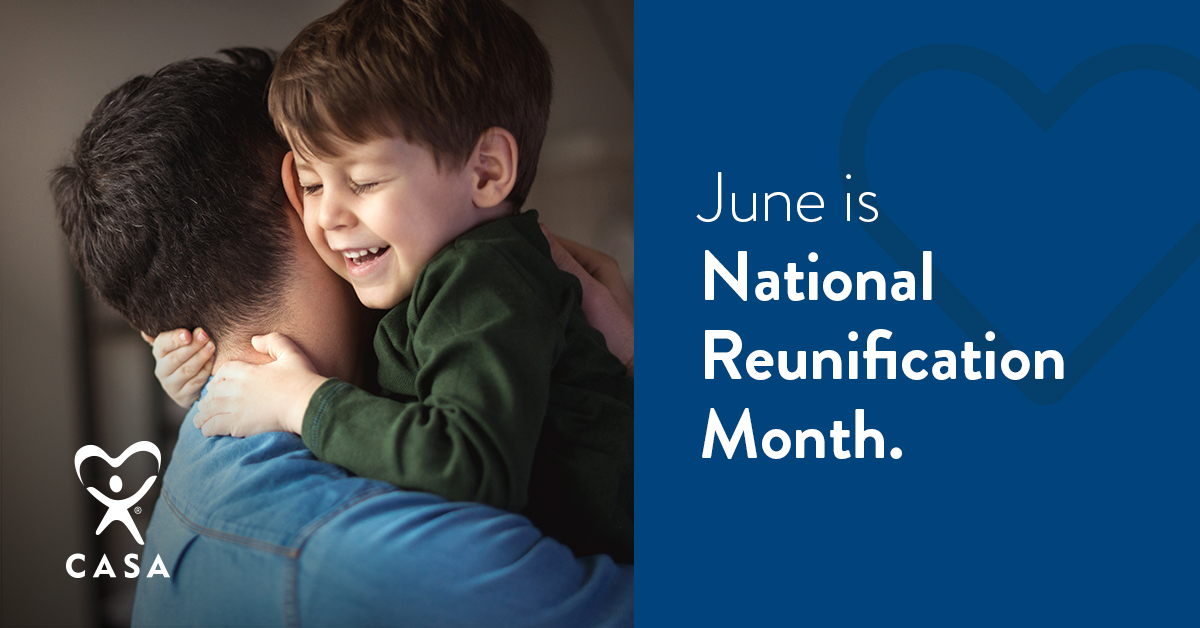National Reunification Month: A Time to Celebrate, Recognize, and Inspire

This month, we are observing National Reunification Month. There is a three-fold purpose to this important month:
- To celebrate the accomplishments and hard work of families who overcame difficulties to reunify with their children.
- To recognize the vital role that other family members, social workers, foster parents, service providers, attorneys, CASAs, courts, etc. play in helping to reunify, strengthen, and support families.
- To inspire other parents that it is possible to address and resolve the issues that led to their separation and to reunify with their children.
Foster care is supposed to be a temporary situation, and the primary goal for children is to be reunified with their biological family. Yet, it is not always clear the exact path to that result, and reunification is a process. There is a lot of work from all parties leading up to the event when the Judge rules that way. Although reunification days are a joyous occasion, the path to reunification takes work, commitment, and investment of time and resources not only by the parents but also by family members, social workers, foster parents, service providers, attorneys, CASAs, courts, and the community. It truly takes a village to bring families back together.
CASA volunteers play a critical role in children being returned home by conducting an independent investigation examining the whole situation including relevant history, environment, and relationships to determine the needs of the child. In addition, CASA volunteers advocate for services through a family-centered, resources-focused lens, yet always have the child’s best interest at the forefront. These services could include regular and frequent visits among family members, parent education courses, and family therapy. By having a multifaceted approach with a focus on strengthening the whole family and addressing the concerns of what brought the children into care, many children are able to reunified with their parent’s after they have made a commitment to caring for and providing for their children.
It is important to note that although a permanent home should ideally be achieved through reunification, a CASA volunteer does not focus on reunification by any means necessary. If reunification is not possible or best for the child, adoption and guardianship can be explored as two other types of permeancey for the child. A CASA volunteer will always be focused on the child’s best interest and work to ensure that they are safe, have a permanent home, and the opportunity to thrive.
Central Georgia CASA is thankful to be able to work on behalf of children in care, and after much work and dedication from the parents and all involved, see many families reunited.
